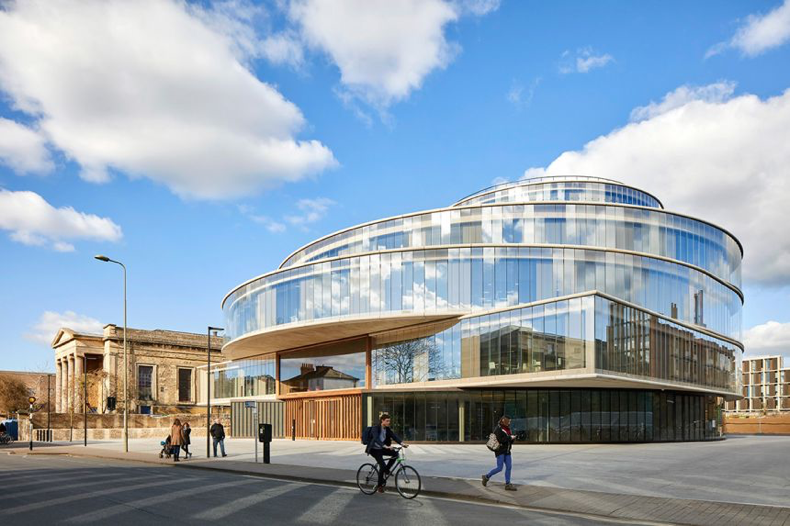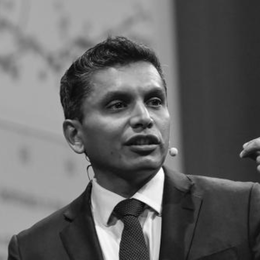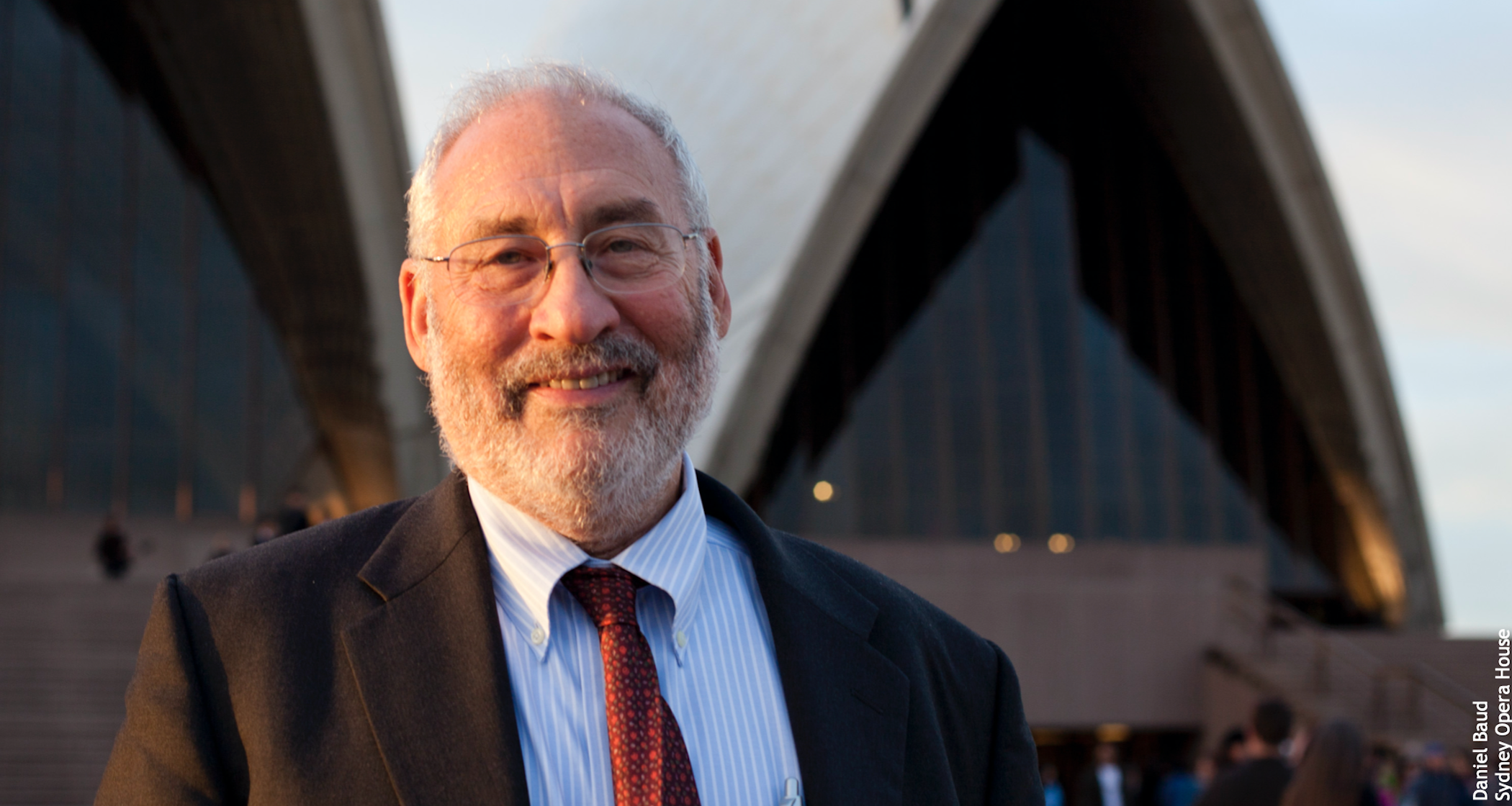Social Outcomes Conference 2021
Set my timezone
Select a timezone from the map or dropdown and click the Set timezone button to adjust the event date/times to your current timezone.

This September, we hosted the Social Outcomes Conference, our annual convening of the world's leading researchers, policymakers and practitioners working to improve social outcomes. Sign up here for our next edition taking place September 2022 (SOC22).
Headline speakers

Professor Joseph Stiglitz
Columbia University

Dr Dambisa Moyo
Chevron Corporation, Condé Nast & the 3M Company

Professor Karthik Ramanna
Blavatnik School of Government

Professor Philip McCann
Sheffield University Management School
About Social Outcomes Conference 2021
Our conference aims to bring together the rigour of the most recent, cutting-edge academic research with an applied, real-world focus. It is an opportunity for participants to engage in vibrant exchanges between both policymakers, practitioners and academics from around the world, each with their own experience and insights on improving social outcomes.
This year's conference was built around five key themes:
- Outcomes-based contracting
- Outcomes orientation
- Measuring outcomes and value for money
- Procurement and social value
- Government, business and civil society collaboration in places
These themes were all underpinned by a single core question: how can government combine its multiple roles – sometimes as provider, funder, facilitator, and regulator – to support activity which improves social outcomes?
Hybrid conference
This year, we had a packed programme of highly interactive sessions in a variety formats, including thought-provoking roundtables, deep dives and big picture sessions where leading experts tackled some of the most pertinent issues in the sector.
In addition to streaming all of our sessions online, we also offered a number of in-person places to those who wished to attend the conference at the Blavatnik School of Government, Oxford. We took great precautionary measures to ensure that this event was covid-free.
You can read the highlights and watch recordings from Day 1 here and Day 2 here.
This year's keynote speaker: Professor Joseph Stiglitz

We were delighted to welcome Professor Joseph Stiglitz as the Social Outcomes Conference 2021 keynote speaker on Thursday 9 September 1pm BST.
Former senior vice president and chief economist of the World Bank and Nobel Prize laureate, Professor Stiglitz is a distinguished economist on the world stage. He has made major contributions to the fields of macroeconomics and monetary theory, to development economics and trade theory, and to the theories of welfare economics and wealth distribution. Find out more about Joseph Stiglitz here.
In this keynote address, Professor Stiglitz presented a bold agenda to assess societal well-being and outlined how a dashboard of indicators can reveal who is benefitting from growth, whether that growth is environmentally sustainable, how people feel about their lives, what factors contribute to an individual’s or a country’s success.
Pre-conference sessions
This year, on the side of the main conference, we hosted in partnership with other organisations two special sessions that spotlighted particular regions: India and Latin America respectively. The regional spotlight sessions featured in-depth discussions of the state of play, evidence and lessons learnt regarding the development of outcomes-based approaches in the respective regions, and brought together senior policymakers, experienced practitioners, representatives from the civil society and academia.
These sessions took place on Wednesday 08th September 2021 and were online only.
Conference structure
The conference featured a mix of different types of sessions, alongside opportunities for informal discussions and both virtual and in-person networking.
- Big picture sessions explored broad, cross-cutting topics. For example, how government are using public procurement systems to promote social objectives.
- Roundtable sessions provided an open space for participants to engage in discussion, share knowledge and learn from others' experiences. For example, learning from international perspectives on outcomes-based partnerships.
- Deep dive sessions put specific areas of research and practice into focus. For example, looking at using social impact bonds to commission preventative services tackling children's welfare.
This year's five themes
Outcomes-based contracting
Contracting for outcomes has a long history and is increasingly featured as part of a wide literature covering government outsourcing and payment by results. Social impact bonds – which are increasingly known as social outcomes contracts – continue to be launched all over the world and attract a broad network of practitioners.
But, these partnerships between governments, charities and social investors can take widely varying forms. Why is this? How do the efforts in different policy domains and geographies compare with one another? What lessons can be learned from efforts to date that might inform government contracting practice more broadly? Might the disruption of COVID-19 lead practitioners and policymakers towards or away from these practices?
Outcomes orientation
While an outcomes logic is perhaps most explicit in outcome-based contracting, there exist a host of other managerial models and learning routines that seek to focus the attention of those delivering goods and services - be they government employees, private contractors, or issue- or policy-based multi-organisational partnerships - on continual improvement with the ultimate goal of improving the societal outcomes governments prioritize for the people they serve. Examples include (but are certainly not limited to) performance management, performance-based budgeting, venture philanthropy, learning forums, rapid cycle testing, and collaborative performance regimes.
But, how well do these models work, especially in comparison to one another? Are there emerging practices worth exploring? And, how informed are these approaches by the experience of service users and citizens?
Measuring outcomes and value for money
The desire to quantify and measure social impact only grows larger. Efforts are being pushed along by the impact investing and purpose-led business movements that are growing worldwide. Whilst useful at a macro level, there is evidence these efforts can overreach and limit the scope for collaboration and continuous improvement at the delivery level.
Can standardisation and harmonisation of measures better enable like-for-like comparison of alternative strategies to enhance decision making? What tools and data are needed to support more comprehensive approaches to value-for-money assessments in contracting decisions? Can different motives for measuring outcomes be reconciled across diverse sectors, policy domains and levels of decision-making, and should they be? Does measurement weaken the voices of citizens and service users?
Procurement and social value
Public procurement accounts for 12% of GDP in OECD countries. In the UK, procurement accounts for £100bn (47%) of local authority spending. Leveraging these resources to the greatest social and economic effect is crucial for the well-being of suppliers and communities and in ensuring a robust recovery from the Covid-19 pandemic.
What are the regulatory and policy frameworks which can support sound procurement decision making? What does a culture of good market development, thoughtful contract award, and effective contract management look like, and how can it be promoted? In what ways is social value considered and monitored in procurement processes, including during contract delivery? What has procuring during COVID-19 taught us?
Government, business and civil society collaboration in places
All over the world, there is a ‘geography of discontent’, with local and regional patterns of economic and social deprivation contributing to division and discord. In the UK, regional disparities are greater than in any other major developed economy. Yet governments all over the world have promised to ‘build back better’ after COVID-19.
How might public, private and civil society bodies in towns, cities and regions work together to achieve this? Actors in these sectors hold mutual responsibilities towards each other and a collective responsibility towards citizens. This gives them a shared purpose, which can be made explicit and used to help the organisations with a stake in the success of a place to organise their efforts relative to one another.
Such local purpose-oriented networks hold promise in incorporating a broader set of voices into decisions about a place, co-ordinating the efforts of a diverse set of organisations, and informing ongoing adaptation in the light of evolving circumstances. How might a network of actors in a place co-ordinate their activity around a common purpose?